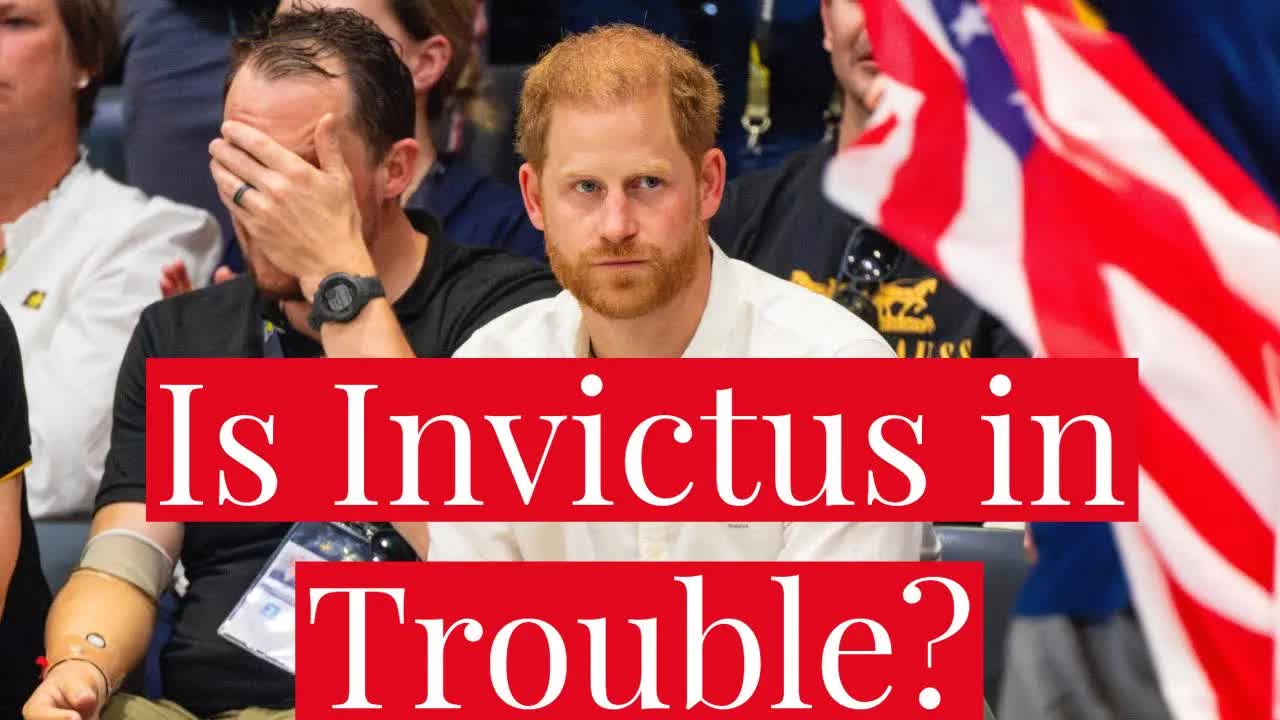Must Read
Turbulent Times for the Invictus Games: Is Prince Harry’s Vision Losing Its Way?
In a surprising turn of events, the CEO of the Invictus Games has officially stepped down, raising eyebrows about the future of this celebrated event.
With the next games just six months away in Whistler, Vancouver, many are questioning whether Prince Harry is veering off course from the original mission that inspired the games.
The timing of this resignation seems particularly curious, as it leaves the organization without clear leadership at a critical juncture.
The Invictus Games, which were founded to support wounded veterans and promote their rehabilitation through sports, have been a passion project for Prince Harry.
However, the recent departure of Dominic Reid, who has led the organization for a decade, casts a shadow over its future.
Typically, one would expect a leader to remain until a major event concludes, ensuring stability and continuity.
Yet here we are, facing the prospect of the games being leaderless as they approach a significant milestone.
Adding to the intrigue is the upcoming announcement regarding the 2027 Games, which could be held in either Washington, D.C., or Birmingham, UK.
With Reid's exit, there's uncertainty about who will take the reins to steer these crucial decisions.
This lack of direction raises concerns about the overall health of the Invictus Games, especially given that they rely heavily on public support and ticket sales.
Prince Harry's recent receipt of the Pat Tillman Award has also sparked controversy, with critics questioning his qualifications for such recognition.
His acceptance speech was perceived by some as overly corporate and lacking the emotional depth one might expect from an event honoring service and sacrifice.
The fallout from this award, coupled with the news that his documentary “Heart of Invictus” received no Emmy nominations, only adds to the narrative of a struggling brand.
It seems clear that both Harry and Meghan Markle are in dire need of a success story in Hollywood.
Despite the potential for “Heart of Invictus” to resonate with audiences, it appears to have missed the mark, reflecting poorly on their ability to connect with viewers.
The resignation of the CEO could be indicative of deeper issues within the organization, suggesting that the Invictus Games may be floundering under their stewardship.
Looking back at the history of the Invictus Games, one can't help but note the stagnation in participation numbers.
The last games saw free individual events, yet the attendance tracking was virtually non-existent.
If the games are to thrive, they need a robust audience willing to buy tickets and engage with the cause.
Unfortunately, the current trajectory suggests that interest may be waning.
Moreover, the financial demands of the upcoming winter games in Canada are staggering.
Organizers estimate a need for $30 million, split between government support and fundraising efforts.
With an operational budget far smaller than required, the sustainability of the games is in question.
The need for volunteers is also pressing, yet reports suggest difficulties in attracting them, possibly due to the tarnished reputation of the event.
Critics have pointed out that Harry and Meghan's high-profile appearances, while intended to boost visibility, may actually be alienating potential supporters.
Their celebrity status seems to overshadow the true purpose of the games, shifting focus away from the veterans who should be at the forefront.
The perception of the Invictus Games as a vanity project for the couple could discourage public investment.
As the organization prepares for its next chapter, the emphasis on Harry's personal narrative risks overshadowing the veterans' stories.
While the games have undeniably helped many, the notion that they can “save lives” is a stretch.
The reality is that not all veterans will find solace or healing through sports, and it's crucial to acknowledge that the Invictus Games cannot cater to every individual's needs.
Reid's departure raises questions about the organization's future direction.
He emphasized the importance of continuing to serve those who have been injured in service, but the games must also adapt to changing circumstances.
The geopolitical landscape is ever-evolving, and the need for such events should be assessed realistically.
Despite the challenges, the Invictus Games have established a community of nations and a legacy of support for veterans.
Yet, the focus must shift back to the athletes themselves.
Their stories, struggles, and achievements should be the focal point of the event, rather than the celebrity personas of its founders.
Ultimately, if Prince Harry and Meghan truly wish to see the Invictus Games succeed, they must reassess their roles.
It's time to step back and allow the veterans to shine, ensuring that the games are about them and their journeys, rather than becoming another chapter in the Sussexes' personal saga.
The future of the Invictus Games hinges on their ability to refocus and revitalize the mission that started it all.








































